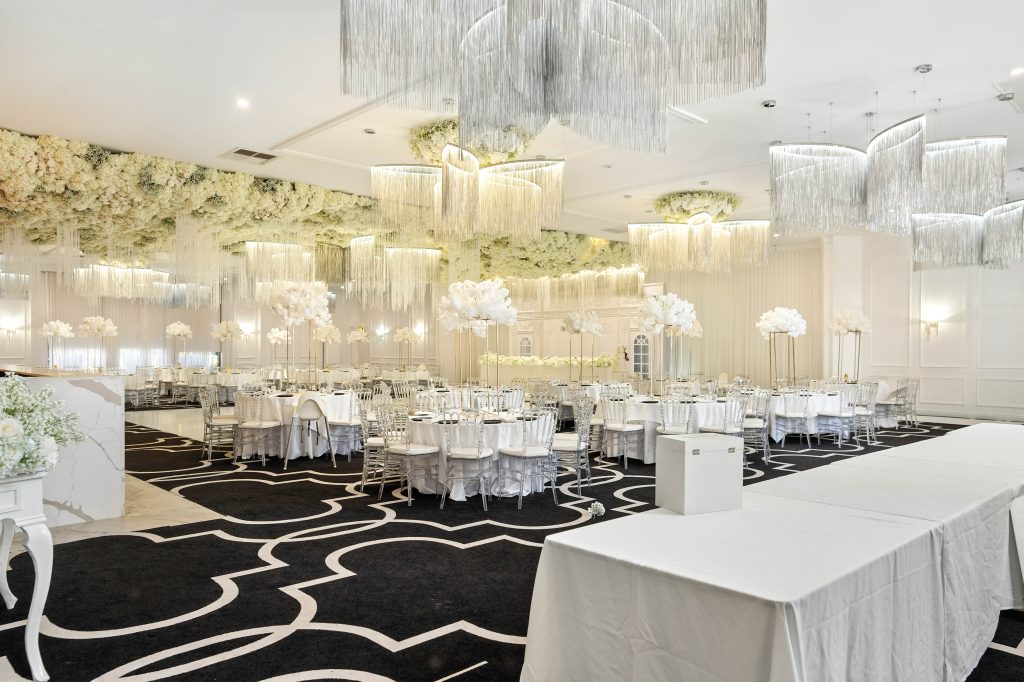Graduation is a big deal. Years of late nights, assignments, exams, and stress finally lead to this one milestone. The party that follows should feel like a reward, not another problem to solve.
But too many people make the same mistake when choosing a graduation party venue. They pick the first place that pops up on Google, or they go with whatever venue their friend’s sister used. Then party night arrives and everything goes wrong: guests driving around looking for parking, the microphone cuts out during dad’s speech, guests squeezed shoulder-to-shoulder.
That’s no way to celebrate something this important. You survived years of school – your party should reflect that accomplishment. This guide walks you through finding a venue for a graduation party that actually works for your celebration, your people, and the kind of night you want to remember.
Why the Venue Matters More Than You Think
The venue for a graduation party sets the tone for everything else. Pick a cramped restaurant and guests head home early. Choose somewhere hidden and people arrive annoyed before they’ve even walked in. Go with a plain room and your photos will look dull for the rest of time.
But the right space changes everything. People settle in, they laugh, they linger. The graduate actually gets to enjoy the night instead of running around fixing problems.
Step One: Decide What Kind of Party You Want
Before calling venues, picture the night you want.
- Do you see a formal dinner with speeches and a toast?
- Or a relaxed night with music, dancing, and no pressure?
Both are fine. Just make sure the graduation party venue matches the mood.
And talk about money early. Don’t blow the whole budget on the space and then realise there’s nothing left for food. One graduate did exactly that and ended up turning their big night into a potluck. Not the memory you want following you.
Step Two: Be Realistic About Guests
A guest list makes or breaks the choice of venue.
Write it in three groups:
- People you have to invite (close family, best friends).
- People you’d like to invite (extended family, classmates).
- People you can invite if budget allows.
Start with group one and work down. And don’t gamble on people not showing up. Graduation parties usually have strong attendance—plan for about 80–85% of your invites to turn up.


Step Three: Location Matters
When comparing venues, think about practical details:| Factor | Ask Yourself | Why It Counts |
| Parking | Free or paid? Enough spots? | Guests won’t walk blocks in heels or with walking sticks |
| Accessibility | Easy to find? Clear on GPS? | Guests don’t want to circle the streets on celebration day |
| Distance | Close to most people? | Long drives cut numbers and energy |
| Safety | Well lit, good area? | Everyone should feel comfortable coming and going |
Step Four: Walk the Space
Photos can lie. Walk through the space in person and imagine the night.
Inside: Is there room to move? Can everyone hear a toast? Any weird pillars cutting off views?
Outside: If it has a garden or patio, what’s the plan if it rains? Is there enough light for speeches and photos?
Layout: If there are separate rooms, is it easy to move between them? Or will people get lost?
Step Five: Check What’s Included
Never assume. Ask directly:
- Does the sound system work, and can you test it?
- Are there enough bathrooms?
- Is there heating and cooling that won’t break down?
- Are tables, chairs, and linens in good condition?
- Is there staff to help set up, clean up, and coordinate?
Step Six: Don’t Ignore the Food
Food can make or ruin the night. Bad catering gets remembered for years—and not in a good way.
- Taste before you book.
- Ask about dietary needs upfront.
- Check what’s actually included (dishes, servers, cutlery).
- Go through the fee list carefully so you’re not shocked later.
- Choose service style that fits: buffet for relaxed, plated meals for formal.
Step Seven: Test the Tech
Most graduation parties have slideshows, music, and speeches. Don’t trust the venue’s word, rather test the gear.
- Internet connection (actually try it).
- Projection setup visible to the whole room.
- Microphones that don’t cut out.
- Outlets in places that make sense.
- Acoustics that don’t make people shout.
Step Eight: Think About Photos
Graduation photos end up in frames, albums, and social media feeds for decades. Look for:
- Natural light indoors.
- Outdoor areas with good backdrops.
- Spaces big enough for group shots without blocking the walkway.
Step Nine: Read the Contract
The fine print can sting later. Watch for:
- Cancellation and deposit rules.
- Payment schedule.
- What counts as damage.
- Time limits, for when setup can start, when cleanup must end.
- Rules about outside vendors like DJs or caterers.
Step Ten: Plan the Day
Once you’ve booked, draft a timeline:
- Setup and vendor arrivals.
- When guests start arriving.
- When food is served.
- When speeches and toasts happen.
- Cleanup and pack-up.
Choosing the Venue
After visiting a few places, compare them. Don’t just look at price. Look at comfort, space, and whether you can picture the celebration there. The best venue for a graduation party is the one that feels right and fits the practical needs of your night.
Questions to Ask Before You Sign
- What’s included in the hire fee?
- Are there hidden or extra costs?
- What’s the wet-weather plan?
- How many events do you host on the same day?
- Can I see the space during a live event?
Final Thoughts
Your graduation party is more than just another get-together. It’s closing one door and opening another. So find a place your guests can actually get to, that feels right for what you want, and won’t leave you running around fixing things all day. When the basics work, you get to enjoy your own party, people have a good time, and the pictures look like the celebration you wanted.

